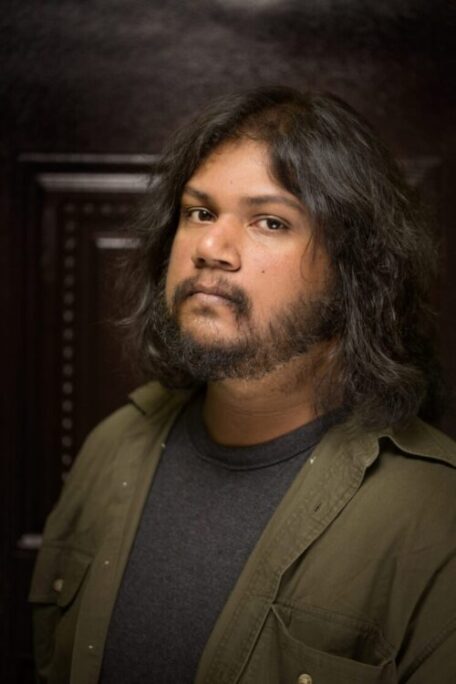Shortlist interview: Kevin Jared Hosein
31st May, 2024
Trinidadian author Kevin Jared Hosein talks to us about Hungry Ghosts.
How do you feel about being shortlisted for the Walter Scott Prize for Historical Fiction? Do you consider yourself an historical novelist?
Truly a privilege to be shortlisted and to have Trinidad and Tobago be represented on such an impressive stage. Moreover, I feel like I am accomplishing the dreams of my ancestors when they first crossed those dark seas from India almost two centuries ago. I do not consider myself a particular type of novelist and did not have the genre of historical fiction in mind when penning this work, though it certainly belongs to that genre. I simply had in mind the story of a group of people desiring things that they could never have—at least without destroying those around them.
How did the people and times you write about in this novel first lodge in your imagination?
My family is an enormous one. My parents, grandparents, many aunts, uncles, more than a score of cousins. And multiple stories emerging from the mouths and the lives of each. At weddings, birthdays, pujas, wakes, stories would go on for hours. In Trinidad, we call it ‘ole talk’. I did not partake in it much but I’ve been eavesdropping for years. The people in Hungry Ghosts are amalgamations of real personalities. The time, at the tail end of British colonisation; in the middle of WWII, American occupation; and just a few years after the Oilfield Riots, I’d chosen because it represented when many were ready to destroy the island to start something new and beautiful. That was the dream. In a sense, that dream turned into a beautiful nightmare.
What place does research have in your writing? When does the fiction take over from the facts?
Much of the primary research I’d done was from doing interviews with elders in the village I grew up in, close to the Caroni River. People were shy about certain things but were not shy when speaking about their neighbours. At a point, it was just a matter of corroboration and to eliminate exaggerations, where I had help from a friend, a historian. Archival information always has to be double-checked especially in the cases of the hunters telling the stories of lions. Some of this research is in my daily life, as echoes of the events still persist.
Fiction takes over facts from the definition of the very word—fiction is the retelling of events to make an emotional impact. I admit, there are times I had to remind myself that I was not giving a history lesson, but instead imbuing a plot with the spirit of that history, and embedding characters with the ideologies and desires from that period. Fiction makes the facts more familiar—or unfamiliar, whichever is the ambition of the writer towards their audience.
Can writing about the past help us to deal with the present and think about the future?
To write about the past, to write about history, is to continuously re-examine it. Either our own history in the Caribbean was not written by us, or was written in cadences and sensibilities we were told to aspire to. When writing Hungry Ghosts, it had occurred to me again and again what we here in the Caribbean have viewed as ‘good literature’ or ‘the correct literature’ and how that has changed over the years. And it had occurred to me to write this novel in an intimidatingly splendid tongue, just oppressive enough so that its very subjects could barely comprehend, peppered with our own Creole vernacular and unique words for plants, food and rituals.
So yes, writing about history is a constant re-examination and re-negotiation of the things that we tend to put on pedestals, so we would know which things shone brightest in our society, and would keep shining for us in the future.
The Walter Scott Prize has a younger sibling, the Young Walter Scott Prize, which is a creative writing prize for young people (11-19 years), who are asked to write a short story set before they were born. If you were asked for one tip to help young writers start writing historical fiction, what would it be?
Quarrel with history—to quote Jamaican poet Edward Baugh. Do not be kind to it. History is more than setting, protocols and aesthetic. Imagine the things the scribes, the storytellers, the archivists were too ashamed to write down. The history of things omitted is just as important as the history of things recorded.

